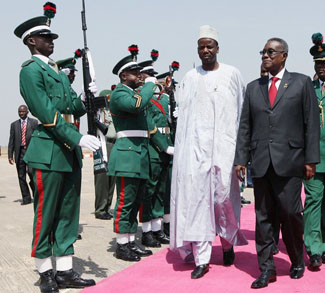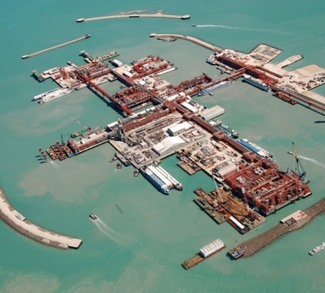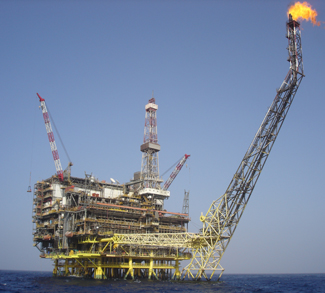The ascent of Ghana as an oil exporter will shift the energy landscape in Africa, potentially heralding in a new era of development in the West African state. But, it could also serve to poison the domestic political situation in a country long thought of as one of Africa’s most stable democracies.
Ghanaian politicians are scrambling to put together a legislative framework that will ensure oil industry profits won’t be squandered as they have in other resource rich African countries. In these parliamentary debates, Nigeria is frequently cited as an example from which Ghanaian lawmakers must learn. The mismanagement and corruption surrounding Nigeria’s oil industry have both helped to re-enforce the concept of an African ‘resource curse.’ That is to say resource rich African countries have been more about lining corporate pockets than building infrastructure networks in the past. Ghanaian lawmakers hope to change that.
For a country suffering from electricity shortages, poor roads, and absolutely no rail infrastructure, oil revenues could serve as a crucial catalyst for future development. However, three key bills governing the oil industry have yet to be passed into law: the Revenue Management Bill, the Petroleum Exploration and Production Bill, and the Exploration Bill. Issues such as the ideal proportion of oil revenues to commit to infrastructure, and whether or not to borrow using the collateral of future oil revenues to invest in said infrastructure, are holding up the legislative process. All of the standard development issues of time immemorial are also present in these parliamentary debates, mainly how to ensure transparency and institutional oversight of where the oil money is going.
Ghana’s political discourse over its nascent oil industry is particularly important because of how similar debates have been affected by international forces in the past. Much has been written on China’s drive to engage economically with Africa and thus secure a supply chain for its booming economy. A by-product of this drive has been to usher in a greater separation between economics and politics amongst international competitors when it comes to bidding for African projects. In other words, China’s willingness to offer trade deals and loans with no political strings attached has forced the competition to start doing the same. In the case of Ghana, China has been very active in executing its conventional strategy of laying a path for state-owned energy companies through favourable loan deals from the central government. Last September, Ghanaian President John Atta Mills visited China to sign $13 billion worth of loan deals aimed at developing Ghana’s oil, gas, road, and rail infrastructure.
The effects of foreign corporate competition on domestic legislation are also important because of the potential drawbacks of political mismanagement. In some cases, a lack of transparent government oversight and legitimacy problems in the eyes of a domestic population can lead to the investment itself being jeopardized. Such is the case in Nigeria, where a persistent armed rebellion lead by MEND continues to cost both the government of Nigeria and its corporate suitors a great deal of money.
Ghana’s rise as an oil exporter won’t fundamentally change the energy landscape in Africa, but it could go a long way in dispelling some of the negative connotations surrounding resource-rich African states. Now that the oil has started pumping, all eyes are on one of the exemplars of political stability in Africa, waiting to see if a resource curse can actually be lifted.




